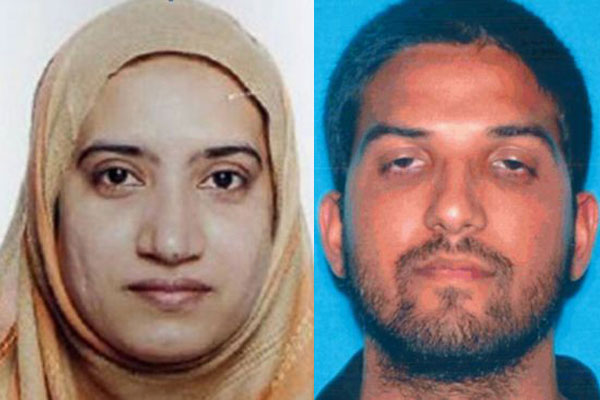
California killer Malik attended 'troubled' university
MULTAN (Pakistan), December 7, 2015
Security officials have been closely monitoring a university in east Pakistan attended by Tashfeen Malik, the woman involved in last's week's mass shooting in California, because of concerns that Islamist militancy was taking hold there.
Malik, a Pakistani, attended the sprawling Bahauddin Zakariya University to study pharmacy between 2007 and 2012, after she had lived most of her life in Saudi Arabia.
Police and security officials on campus in the Punjabi city of Multan said intelligence officers had been stationed there to monitor militancy among 35,000 students studying in red-brick buildings set amid neatly kept grounds.
The enhanced security and monitoring was in response to the massacre of 134 pupils at an army-run school in the northwestern city of Peshawar a year ago that was blamed on the militant Pakistani Taliban movement.
Malik had finished her studies by then, and officials said there was no evidence so far that she was radicalised at the university or had links to any particular militant group.
But the tight security raises questions about Bahauddin Zakariya University itself and the potential for extremism being promoted in higher education in Pakistan more broadly.
"Our intelligence officials are now based in the university, working around the clock, gathering clues," said a policeman inside the university, who did not want to be named because he was not authorised to speak to the press.
"This is unusual for us, to put intelligence and police inside a university, but we have no choice."
Behind him, a group of young men played guitar by a fountain, while women in full face veils sat chatting with male students at a nearby table.
"The university is under 24-hour surveillance. We have installed security cameras around the university, including in all dorms," said the officer.
Last month, police retrieved weapons from the men's dorms on campus, arrested three students and confiscated mobile phones and laptops from others, he added.
A second security official on campus, a police superintendent who also declined to be named, said that a few months ago the university received a letter claiming to be from a banned sectarian group threatening to massacre students.
"This kind of radical thinking exists in this area (southern Punjab) in general, and so of course there will be some reflection of it at the university," the second official said.
Shortly after he spoke, four carloads of police escorted a Reuters reporting team off campus, citing security threats.
Tariq Masood, regional police officer for Multan, confirmed police had "taken action" after university authorities requested that they intervened, but he declined to give more details.
University spokesman Babar Khaqaan said the university was involved in the "promotion of good values", and he condemned Malik's actions.
Malik, who was 29 when she was killed with her husband after a shootout with U.S. police, was born in Pakistan, but spent most of her life in Saudi Arabia before returning to study.
After graduation, she married US citizen Syed Rizwan Farook and had a baby girl this year.
The trigger for Malik's evolution from quiet, conservative student to deadly attacker is still unclear, and US investigators are uncertain how or where she was radicalised and whether she radicalised her husband or the other way around.
While at the university, Malik attended classes at al-Huda seminary, part of a network of religious schools for women and girls. It is not known to have any links to militancy.
Al-Huda has 11 offices across Pakistan, and international offices in Canada, India, Saudi Arabia, UAE, the UK and the US.
The organisation has mostly attracted middle and upper-class women in Pakistan. Malik enrolled in an 18-month religious course at Al Huda in 2012, but left after a few months, said Imran Aamir, head of administration at the school in Multan.
"She was a very shy, reserved girl, like any regular girl, with nothing distinctive about her," Aamir said. "Who knows what compelled her to do what she did? But she did not learn it at al-Huda."
Pakistani officials have sought to restrict the work of reporters investigating Malik's background, suggesting the government is concerned over the damage the killings in California might pose to Pakistan's reputation.
Professors at her university who spoke by telephone, said Malik appeared to be a quiet, religious and unremarkable student.
Malik's family, who have been estranged from her father for decades, say they are sickened by her killing spree and believe she was radicalised in Saudi Arabia.-Reuters







